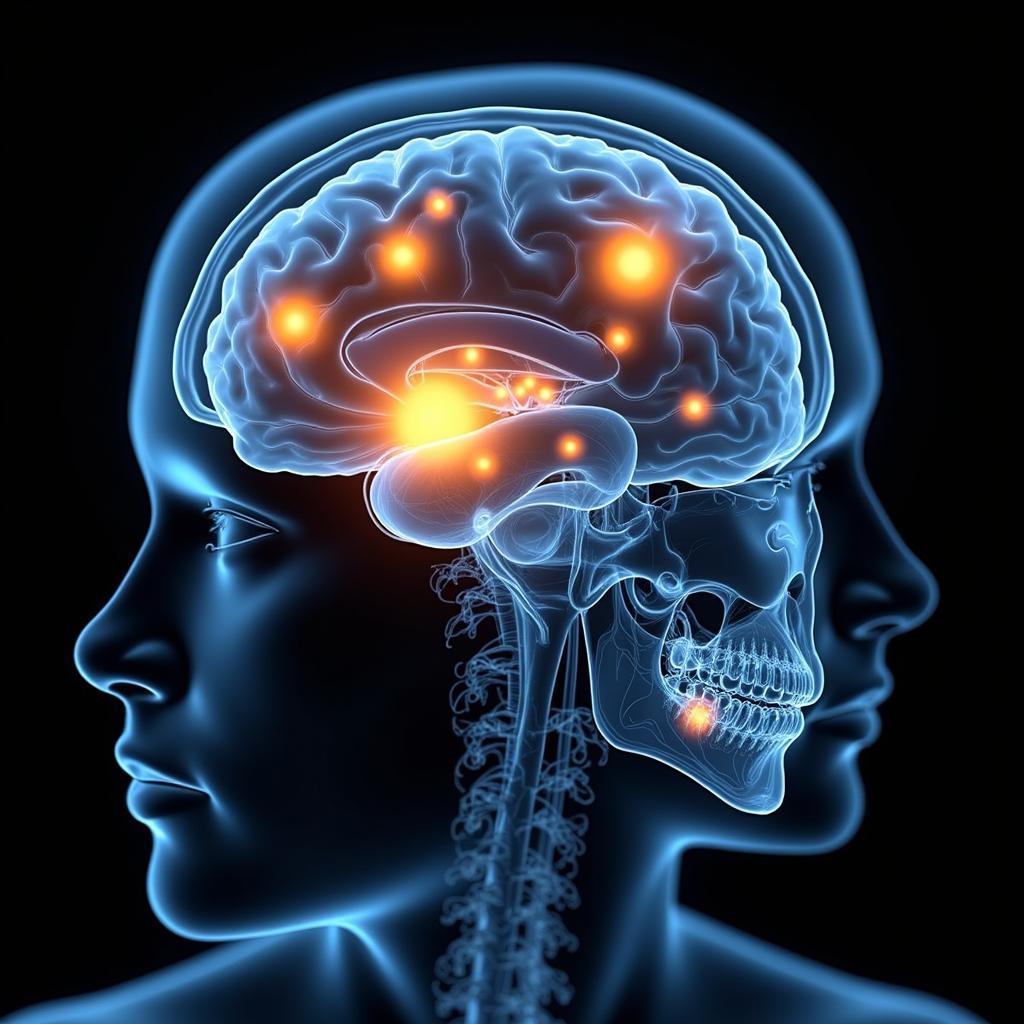Astral research delves into the enigmatic realm of out-of-body experiences (OBEs) and astral projection, where consciousness purportedly separates from the physical body to explore different planes of existence. It’s a fascinating field that bridges science, spirituality, and the unexplained, attracting both skeptics and believers. It involves examining the claims, evidence, and potential explanations surrounding these phenomena. Just after the first reports of OBEs, researchers began studying this topic.
What is Astral Research?
Astral research encompasses a broad range of inquiries. It explores the nature of consciousness, the possibility of non-physical realities, and the potential mechanisms underlying OBEs. Researchers use various methods, from surveys and interviews with individuals who claim to have experienced astral projection to laboratory experiments aimed at inducing and measuring these altered states of consciousness. Some researchers focus on the psychological aspects of OBEs, exploring their connection to dreams, hallucinations, and near-death experiences. Others investigate potential physiological correlates, looking at brain activity, changes in heart rate, and other bodily functions during these experiences.
northcoast research offers some insight into related paranormal phenomena.
The Science Behind Astral Research
While the existence of astral projection remains scientifically unproven, some studies have offered intriguing hints. Neuroimaging studies have identified specific brain regions that may be involved in OBEs, such as the temporoparietal junction, which plays a role in spatial awareness and self-perception. Some researchers hypothesize that disruptions in this area could contribute to the sensation of leaving one’s body. However, more rigorous research is needed to understand the complex interplay of neurological factors and subjective experiences in astral projection.
Exploring Altered States of Consciousness
Astral research often overlaps with the study of other altered states of consciousness, such as lucid dreaming, meditation, and hypnosis. Researchers are interested in exploring the commonalities and differences between these states, seeking to uncover the underlying mechanisms that give rise to experiences of disembodiment and non-ordinary reality. These states often involve changes in brainwave patterns, shifts in attentional focus, and alterations in sensory perception. Understanding these changes could shed light on the nature of consciousness itself.
 Astral Projection Research: Brain Activity During OBE
Astral Projection Research: Brain Activity During OBE
The History and Cultural Significance of Astral Projection
Beliefs about astral travel are deeply rooted in various cultures and spiritual traditions across the globe. From ancient shamanic practices to modern esoteric teachings, the concept of the astral body has played a significant role in understanding the human soul and its relationship to the spiritual realm. Studying these historical and cultural contexts can offer valuable insights into the human desire to transcend physical limitations and explore the unseen world.
Different Cultural Perspectives on Astral Travel
Different cultures hold diverse beliefs about the nature and purpose of astral travel. In some traditions, it’s seen as a way to communicate with spirits, access hidden knowledge, or even influence events in the physical world. Other cultures view it as a form of spiritual development, a path to self-discovery and enlightenment. Understanding these different perspectives helps us appreciate the rich tapestry of human experience and the diverse ways in which people have sought to understand the mysteries of consciousness and reality.
mississippi gulf coast research lab might offer further perspectives on the cultural and historical contexts of such phenomena.
Common Misconceptions About Astral Research
There are many misconceptions surrounding astral research, often fueled by sensationalized portrayals in popular culture. Some believe that astral projection is inherently dangerous, while others view it as a mere fantasy or delusion. Astral research aims to address these misconceptions by providing evidence-based information and promoting a nuanced understanding of the phenomenon.
Addressing Skepticism and Criticism
Astral research faces its fair share of skepticism and criticism from the scientific community. Some researchers argue that OBEs are nothing more than hallucinations or vivid dreams, while others dismiss the entire field as pseudoscience. It’s essential for astral researchers to acknowledge these criticisms and engage in rigorous scientific inquiry to address them. This involves developing reliable methods for inducing and measuring OBEs, carefully controlling for potential biases, and replicating findings across multiple studies.
The Future of Astral Research
The future of astral research lies in integrating rigorous scientific methodologies with open-minded exploration. As technology advances, researchers will have access to increasingly sophisticated tools for studying brain activity and consciousness. Combining these tools with careful experimental design and interdisciplinary collaboration could lead to groundbreaking discoveries about the nature of reality and the potential of human consciousness.
suncoast research group is also involved in exploring these areas.
In conclusion, astral research represents a fascinating frontier in the exploration of consciousness and the unexplained. While many questions remain unanswered, continued scientific inquiry and open-minded investigation hold the potential to unlock profound insights into the mysteries of human experience and the nature of reality itself. Further astral research could revolutionize our understanding of consciousness.
FAQs about Astral Research
-
What is the difference between astral projection and lucid dreaming? While both involve altered states of consciousness, astral projection is characterized by the sensation of leaving one’s physical body, whereas lucid dreaming focuses on becoming aware and taking control of one’s dreams.
-
Is astral projection dangerous? There’s no scientific evidence to suggest that astral projection is inherently dangerous. However, like any exploration of altered states of consciousness, it’s essential to approach it with caution and respect.
-
How can I learn more about astral research? There are numerous books, articles, and online resources available on the subject. It’s crucial to approach these resources with a critical eye and prioritize information from reputable sources.
-
Are there any scientific studies on astral projection? While the scientific evidence for astral projection is still limited, there are some intriguing studies that explore the neurological and psychological aspects of OBEs.
-
What are some of the ethical considerations in astral research? Ethical considerations in astral research include ensuring informed consent from participants, protecting their privacy and confidentiality, and avoiding any practices that could potentially harm them.
compare and contrast research paper outline template could help organize further research on this topic.
 The Future of Astral Research: Exploring the Frontiers of Consciousness
The Future of Astral Research: Exploring the Frontiers of Consciousness
podcast researcher jobs may offer opportunities to learn more about similar research areas.
Need help with your own Paranormal Research? Contact us 24/7: Phone: 0904826292, Email: research@gmail.com or visit us at No. 31, Alley 142/7, P. Phú Viên, Bồ Đề, Long Biên, Hà Nội, Việt Nam.